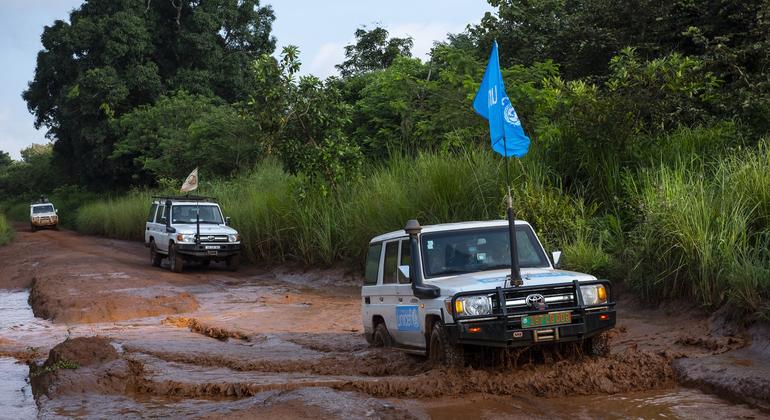Abdou Abarry, the UN Special Representative for Central Africa, recently addressed ambassadors in the Security Council and provided them with a sobering update on the current situation in the region. He revealed that disasters and extreme weather events have led to the displacement of over three million people in Central Africa just this year. This has exacerbated an already fragile socio-economic situation and highlighted the urgent need for stronger climate action.
In his address, Mr. Abarry emphasized the importance of the Congo Basin forest, often referred to as the ‘second green lung’ of the planet. This forest plays a crucial role in global climate regulation, absorbing 1 to 1.2 billion tons of carbon dioxide annually. The Special Representative noted that at COP29, the forest was recognized as critical, yet international climate financing remains inadequate, with less than 15% of commitments fulfilled.
The humanitarian crisis in the region is also worsening, driven by population displacements and emerging health threats such as Mpox, particularly in the Democratic Republic of Congo (DRC). Mr. Abarry called on the international community to step up their efforts, as the current pace of assistance is insufficient to meet the staggering needs of those affected.
In addition to the climate and humanitarian crises, Mr. Abarry also briefed the Security Council on electoral and political developments in the region. He highlighted the legislative elections that took place in Rwanda in July and informed the Council that several countries in Central Africa, including Burundi, Cameroon, Gabon, and the Central African Republic (CAR), are scheduled to hold elections next year. Countries such as Chad, Cameroon, São Tomé and Príncipe, Gabon, and CAR have sought electoral assistance from the United Nations, demonstrating their trust in the organization.
Addressing regional peace and security concerns, Mr. Abarry stressed the need for continued efforts to address insurgencies in the Lake Chad Basin, particularly attacks by Boko Haram affiliates. He noted that a joint UN mission has advocated for strengthening the Multinational Joint Task Force, which plays a crucial role in regional security. Despite these challenges, nations in Central Africa are working towards resolving disputes peacefully, with countries like Gabon and Equatorial Guinea referring their border dispute to the International Court of Justice (ICJ) and high-level dialogues between Chad and CAR regarding border security.
Looking towards 2025, Mr. Abarry outlined key priorities for the region, including enhanced international funding for climate resilience, humanitarian assistance, and peace initiatives. The UN Regional Office for Central Africa (UNOCA) plans to support these efforts by focusing on strengthening regional stability and addressing humanitarian challenges. In February 2025, the Economic Community of Central African States (ECCAS), in collaboration with UNOCA, will hold a summit to address climate and humanitarian issues.
In his concluding remarks, Mr. Abarry expressed hope for peace, justice, and prosperity in 2025, guided by a collective effort from the international community to address the challenges facing Central Africa. The region continues to grapple with a complex web of climate, humanitarian, and security issues, and it will require sustained and coordinated action to overcome these challenges and pave the way for a brighter future for the people of Central Africa.









